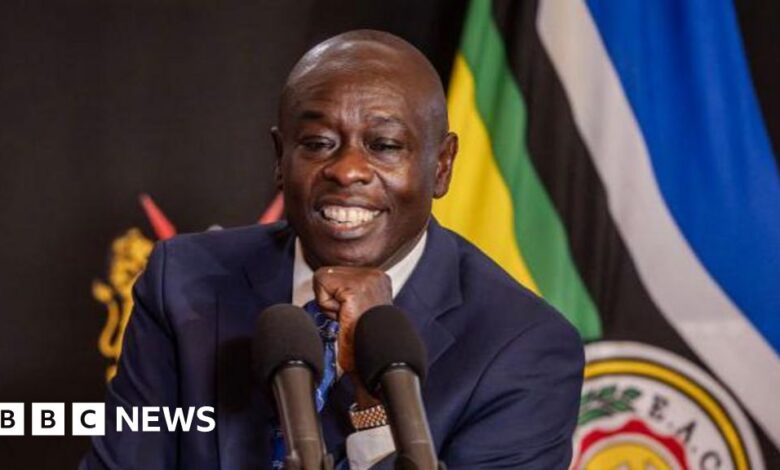The ouster of the Kenyan vice president begins

The Kenyan parliament has begun the final step to remove Vice President Rigathi Gachagua from office.
An overwhelming majority voted in Congress last week to pass his impeachment, setting the stage for a two-day trial in the Senate to decide whether to remove him from office.
The vice president faces 11 charges including corruption, inciting ethnic division and sabotage of the government – all of which he denies.
The controversy follows his recent disagreement with President William Ruto, who has remained silent on the issue.
Gachagua’s trial is underway before the full Senate after it abandoned the process of establishing an 11-member commission to investigate the allegations.
The proceedings have begun and the charges will be read out, followed by opening statements from both sides.
Analysts expect the vice president’s impeachment will be upheld because the ruling party’s senators will likely be supported by those from the main opposition as happened when the lower house voted on the case. job.
From 12:00 local time (09:00 GMT) on Wednesday, Congressional evidence against Gachagua, including any witnesses, will be presented and considered for three hours, then two cross-examination again.
On Thursday, the trial will continue to process evidence and witnesses from Gachagua’s side until late afternoon.
At the end of the evening process, senators will debate the motion for about two hours and then vote – scheduled to take place on Thursday evening from 8:30 p.m. local time.
The Senate could decide to extend the process to Friday, the last day it can legally extend the matter.
At least two-thirds of the 67 Senate members must approve the proposal to remove Gachagua from office.
If that happens and his impeachment takes effect, he will be barred from holding public office.
He is expected to challenge the impeachment in court if it passes.
The vice president has made several unsuccessful attempts to stop the impeachment process, with at least 26 lawsuits filed to date.
On Tuesday, a judge ruled that the court would not intervene and said the Senate should continue to carry out its constitutional duties.
And just before the process began on Wednesday, a three-judge panel also denied the same request.
Some of the grounds of impeachment against Gachagua include the allegation that he purchased assets worth 5.2 billion Kenyan shillings ($40 million; £31 million) in the two years since he became vice president – which was allegedly obtained through corrupt means.
He explained, including during his Congressional trial, that most of the assets in question came from his late brother’s estate.
The vice president is a wealthy businessman from the vote-rich Mount Kenya heartland.
In just five years, he has risen from first-time MP to number two in Kenya’s leadership, after Ruto selected him as his running mate in the August 2022 election.
At the time, he was fighting corruption charges in court that were later dropped after he became vice president.
His impeachment trial has dominated discussions among many Kenyans and the media in recent weeks.
Some see the high political drama this issue has caused as a distraction from the economic concerns of the majority of Kenyans struggling with high costs of living.
In June, disgruntled Kenyans took to the streets in deadly protests that erupted against unpopular tax hikes and exposed a deep rift between Ruto and Gachagua.
Gachagua is now accused of undermining the work of security agencies following comments he made at the time blaming intelligence agencies.



